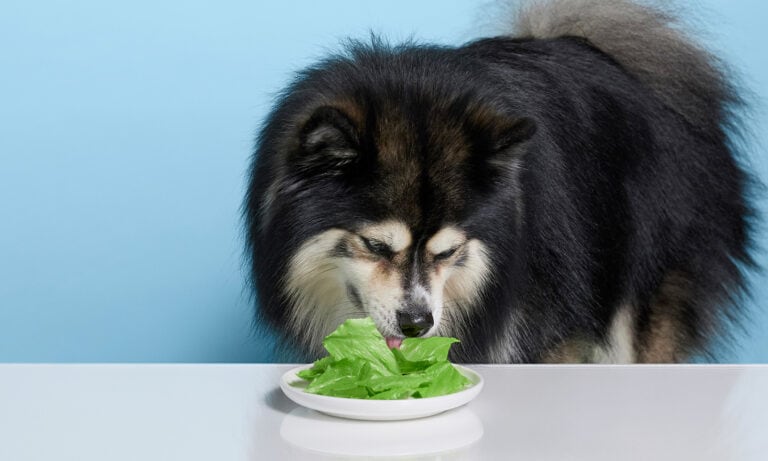Yes and no. While some kinds of walnuts are safe for dogs to eat they are not the best choice for a pup treat.
There’s no need to freak out if your dog eats a walnut you’ve dropped on the floor, says Dr. Ashley Hughes, DVC, but feeding them as a treat on a regular basis is not advised. The dangers for dogs of eating walnuts includes choking hazards, intestinal obstruction and upset stomach to more serious conditions like pancreatitis and illness from black mold that can occur on walnuts and can be toxic to dogs. Why risk any of that, right?
Are Walnuts Safe for Dogs to Eat
As we mentioned if your dog snags a walnut the risk is minimal, but the reason you should not offer walnuts to your dog as a regular treat is these nuts are susceptible to a type of black mold that can prove to be extremely toxic to dogs.
Some fungi that can grow on walnuts produce metabolites called mycotoxins, which are considered to be carcinogenic, while others produce tremorgenic mycotoxins, which can cause tremors and seizures.
While the bags of high-quality, processed walnuts you purchase at a grocery store are much less likely to be affected by black mold than walnuts gleaned from backyard trees, this mold can grow on any walnut at any stage during the growth and processing cycle including shelled or unshelled.
You should never feed your dog walnuts gathered from backyard trees. While it is possible to wash and dry nuts to try and remove any potential mold, the better move is to just not feed your dog walnuts.
Another walnut to NEVER feed your dog is the black walnut which is particularly toxic to canines. Native to Northeastern U.S. and Canada, black walnuts are toxic to horses and dogs, but non-toxic to cats. And if you have a walnut tree in your neighborhood, know that dogs ingesting old walnuts off the ground have the potential to develop tremors and seizures from walnut hulls that are moldy and contain Penitrem A, a mycotoxin, ingestion of which can result in severe generalized tremors, opsoclonus and seizures in dogs.
While still on the subject of dogs and edible nuts, it’s important to add Macadamia nuts to the list of no-go. Consumption of Macadamia nuts can cause hind end weakness, tremors, lethargy and hyperthermia in dogs.
What if My Dog Eats Walnuts?
- Store bought walnuts are less likely to contain black mold than nuts gathered outdoors, so if your dog eats a stray walnut from a bag you purchased at a grocery store you’re probably fine (but no more!).
- If your dog eats a moldy walnut or a black walnut picked up in a backyard or other outdoor setting watch for reactions including vomiting, tremors and seizures. If you see any signs of these, call your vet immediately because these can be fatal if left untreated.
- Walnuts are one of the larger nuts and difficult to digest. Smaller dogs in particular are more susceptible to intestinal blockages which could be fatal if not addressed right away. If your dog eats a walnut still in its shell, there is a great possibility of a blockage. Keep nuts well out of reach of curious pups!
- One of the reasons walnuts are good for us humans is that they are full of healthy fats like omega oils (as well as protein, fiber, antioxidants, vitamins and minerals). Unfortunately, for dogs, high quantities of fats can upset stomachs and potentially bring on nasty side effects like vomiting and diarrhea. “Nuts in general have a high fat content, so even if they are not toxic, they can still cause an upset stomach in some dogs,” says Hughes.
In more serious cases, consuming high fat foods like walnuts can lead to the development of more serious conditions like pancreatitis or gastroenteritis. Salted or seasoned nuts (such as “smoked”) can make your dog feel ill even in small quantities.
While small amounts of some nuts such as peanuts, cashews and almonds ground into nut butters are generally safe for dogs with no underlying health or weight issues to eat, vets recommend you skip nuts and replace them with other kind of dog treats. Remember, “in general, only 10 percent of dogs diet should come from treats,” says Hughes. “And most dogs are as happy to eat a dog treats as a walnut!”
Frequently Asked Questions
Q:Can dogs eat black walnuts?
A:No. Black walnuts get their name from a black mold (that can even be invisible to the eye) and are highly toxic to dogs.Q:Can dogs eat English walnuts?
A:Technically speaking, yes. These walnuts are most used for cooking and are considered the safest walnuts for your dog. However, English walnuts are still high in fat and calories and are not the best treat option.Q:Can dogs eat walnut shells?
A:No. Dogs should not eat walnut shells because they can get stuck in your pup’s intestines and cause a blockage, especially in small dogs.Q:Can dogs eat walnut oil?
A:Yes, dogs can eat walnut oil as long as you are mindful of calories and adjust your pups daily food intake accordingly. It’s often used in both dry and wet dog food.Q:Can dogs eat walnut cookies?
A:Technically speaking yes, as they are likely to contain a minimal amount of walnuts, however cookies often have a lot of sugar and butter, neither of which are healthy for your dog. There are better treat options!Share:









